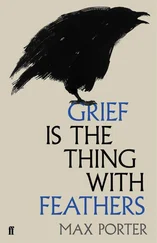“Flatterer,” she said.
Two weeks later, Mrs. Woodhull had another triumph when her nomination was ratified at a second meeting of the People’s Party, which had renamed itself the Equal Rights Party. Frederick Douglass was selected to be her running mate. In the grasp of their considerable enthusiasm the members of the Equal Rights Party neglected to inform Mr. Douglass that he’d won their nomination, and when he did discover it, he didn’t much care. Maci thought his male pride must have been bruised by having a lady put over him on the ballot.
The month, which had started with a funeral, got gloomy again as it closed out. Maci found it startling, how there were people who took seriously Mrs. Woodhull’s bid for the Presidency, how all the work on the Victoria Leagues had borne fruit. Maci thought they were inflating a glorious trial balloon, making a brazen, powerful statement, and it was her conviction that even a score of votes would be a triumph in November. But the largely imaginary Victoria Leagues had turned entirely real. This was a miracle equal in Maci’s mind to the one Gob hoped to accomplish. For roughly a week, she truly believed that Mrs. Woodhull would make a very serious bid for the Presidency, and for a few moments of that week she believed that Mrs. Woodhull actually would be President. Then Mrs. Grundy sat on Maci’s cake.
Maci didn’t know who precisely all Mrs. Woodhull’s enemies were. There were the obvious ones: the Beecher sisters and their devotee, Governor Hawley of Connecticut; Mr. Greeley, who had always vilified Mrs. Woodhull in the Tribune , and perhaps thought her candidacy somehow devalued his own; the entire editorial staff of Harper’s Weekly. These were the people who spoke publicly against Mrs. Woodhull, and though they were all giants, they were slayable because Maci could fight against them in the pages of her own Weekly , addressing every charge they printed or spoke and specifically refuting it.
But there were other enemies, large, nebulous, and inchoate. There were unknown persons who were possessed of such power that they could have the rent raised on Mrs. Woodhull’s home and place of business by ten thousand dollars a year, all payable in advance. In May alone, advertisements in the Weekly fell off by seventy-five percent, and clients abandoned the brokerage in droves. Mrs. Woodhull was forced out of her beautiful house, and no one in the city would rent to her. Maci came home one day to find the Claflins crowded into her rooms at the Fifth Avenue Hotel. “It’s just for a while,” Mrs. Woodhull said, but Maci, looking at Anna Claflin lying in her bed with her shoes on, suspected it would be for a long while, indeed. Yet it was a pleasure to give Mrs. Woodhull shelter when she needed it, even if the Claflins trailed after her like a persistent infestation. Maci was rarely at the hotel anyhow.
For all that she had sworn not to live in Gob’s house, she practically did live there. Her hand ached from making the drawings her husband used as fast as she made them, and she could tell now how his machine was beginning to take its shape from her madness. From your brother , her hand corrected her. From an association of spirits millions and centuries strong. From the accumulated longing of all history’s dead.
In July, Maci sat at a table in Gob’s house, drawing with one hand, writing with the other, while Dr. Fie and her husband wielded sledges to knock down walls, making room for the fattening new Infant. Little Pickie approached her, wearing an apron of pockets, each one holding a different tool, wrenches and hammers and things that looked very much like surgical instruments. “Mama, would you like to make an adjustment?”
“No, thank you,” she said.
“Damn you, then!” he cried, his standard response to her refusals to play at building. He said it more with an air of exuberance than condemnation, and always with a smile. Maci continued with her writing, an open letter to the Times, Herald , and Tribune , in defense of her employer: Mrs. Woodhull is a great and good woman, assaulted by men who hate and fear her because they recognize her as the lady who will steal their fire and make of it a gift for her own sex. No one would ever think of calling her a Romanist because she says that everybody has the right to be Catholic, but transfer the question from religion to sexuality, and because she advocates the same theory for this that she does for religion, she is denounced as an advocate of promiscuousness.
Maci jumped in her seat as a piece of wall fell with a crash. She looked at her left hand as it drew, undisturbed by the noise or the floating plaster dust that settled over the page. It finished a picture, a gentleman’s hat pierced with a corona of glass spikes, then pushed it aside to start another on a fresh sheet. Sometimes she imagined herself drawing and drawing, as her hand stiffened with age, until she was an old lady buried under twoscore of years’ worth of mechanical illustrations. And still, she was sure, her crimped hand would move the pencil.
By summer’s end, Mrs. Woodhull had quite run out of money. The Weekly suspended publication, and the brokerage had no clients anymore. Maci and her husband had their first quarrel when Gob refused to give money to his mother. Everything he had he needed for building, he said, though they were welcome to shelter and feed as long as they wished at the Fifth Avenue Hotel. Maci might have carped at him like a Xanthippe, but whenever she considered this injustice, it made her more sleepy than furious. And Mrs. Woodhull, who Maci had thought capable of taking money from anyone, seemed horrified by the prospect of taking money from her son.
Instead, Mrs. Woodhull exhausted herself lecturing — the more scandalous her reputation became, the more people all over the country wanted to hear her for themselves. But even at the annual convention of the National Association of Spiritualists, who had elected her their president the year before, the audience was just as hostile as it was curious. She went to Boston in September to speak to them, and nearly lost her office. She was challenged on account of her reputation as a Free Lover. She’d always insist it was Demosthenes who prompted her to defend herself with an extemporaneous exposé of Mr. Beecher. In the open summer air, she addressed the soft-minded thousands who sought to impeach her, detailing Mr. Beecher’s infidelity with Elizabeth Tilton. They were all won over. The Spiritualists elected her for another term, and would have proclaimed her Queen if their charter had permitted it.
“There’s nothing left for us,” Mrs. Woodhull told Maci when she returned to New York, “but to do the thing.” She meant to expose Mr. Beecher in print, a move that Maci discouraged at first, because she was sure it would bring nothing but a crushing retaliation. “My star,” Mrs. Woodhull scolded, “you are a frightened innocent!” She gathered Maci into her arms, shouting that Mr. Beecher would fall like a giant into the East River, and send up a wave to soak Manhattan from South Street to West Street. Mrs. Woodhull, temporarily as bouncy as Tennie, held Maci tight and jumped up and down with her, as if trying to launch them both into the sky.
Through September and October, Maci worked with Gob and his mother, and sometimes she was so tired that she confused their projects, so she thought that Gob was building a machine to expose and destroy hypocrisy, and that Mrs. Woodhull was writing an article that argued so powerfully against death that nature, shamefaced after reading it, would revoke mortality. It made sense, after all, to conflate these tasks, because they were equally impossible. But by the time she and Mrs. Woodhull had finished with the Beecher article, when all the facts were gathered, sorted, and transcribed, Maci had a feeling that this thing she’d helped make was so powerful that it couldn’t help but wreak some great change out of its destructiveness. It was a bomb that would burst over Brooklyn and rain down burning, phosphoric reform on the pleading, hapless population.
Читать дальше












